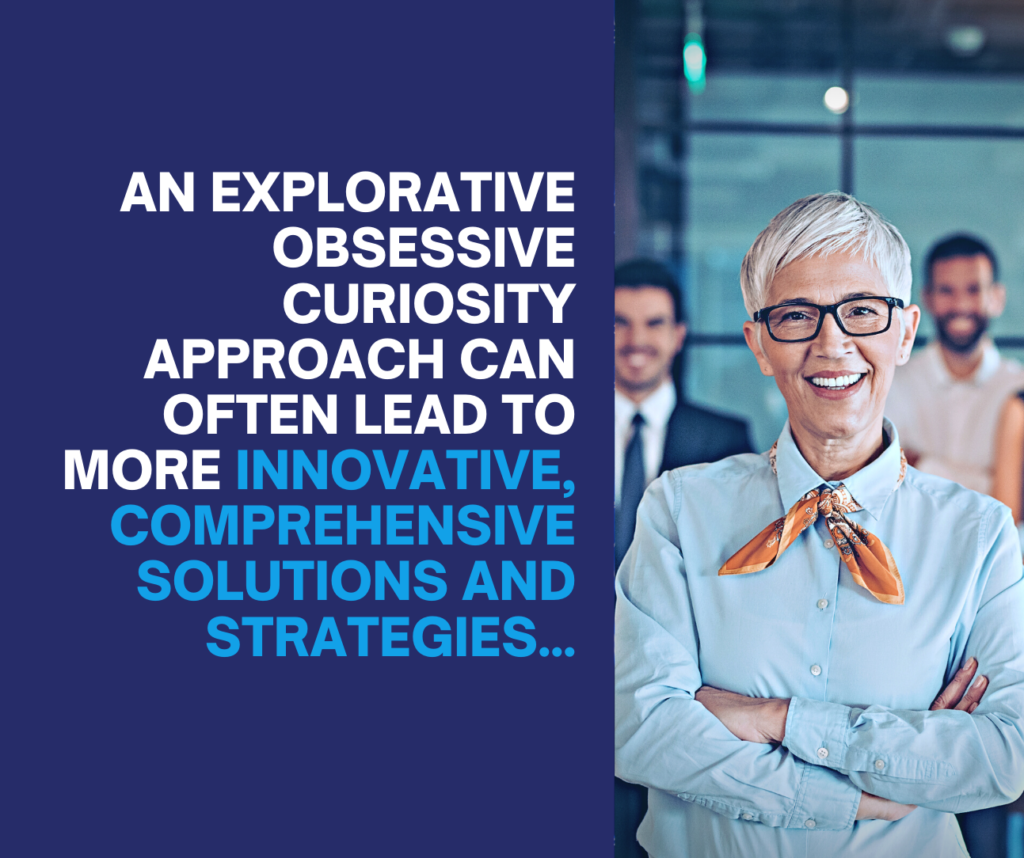Instilling curiosity is a critical leadership skill that is still required today. Leaders must be able to ask questions, seek answers, and understand the world around them. With obsessive curiosity, leaders may become stagnant and gain the ability to innovate and adapt to change. Therefore, leaders must cultivate a sense of curiosity and encourage it in others.
It doesn’t matter If you are a business, political, or educational leader; you must cultivate a culture of curiosity. What does that mean? In 2022, Elon Musk was interviewed at the G20 summit in Nusa Dua, Bali, Indonesia. Musk was asked inquisitive questions by the Indonesian Minister of Education and the audience members about what he believes is a critical element in his approach to learning. Musk responded,” In terms of day-to-day habits, I think being curious about the world and how the world works – I am curious about everything. I think obsessive curiosity is extremely important, and we need to be somewhat obsessive about that curiosity.”
I am writing this article because I agree with Elon Musk about Obsessive Curiosity, especially because curiosity is essential for effective learning and leadership when developing strategic initiatives. Leaders with obsessive curiosity tend to approach challenges more creatively and consider broader possibilities. They also seek diverse perspectives before making decisions. Obsessive curiosity motivates top-performing leaders to ask, “How can we learn and be more effective with our processes, customer satisfaction scores, and profits?” It inspires researchers to delve deeper into their work and uncover new insights.to ask the questions, while focusing on what question am I not asking?
From a Macro viewpoint, utilizing obsessive curiosity takes on a unique approach when dealing with society. We have a choice. Imagine a society being able to listen to others’ points of view and ask questions on how they came up with their logical reasoning and everyone seeking possible solutions to resolving issues versus holding steadfast and adhering to groupthink philosophies and closed-minded opinions.

An explorative obsessive curiosity approach can often lead to more innovative, comprehensive solutions and strategies that help organizations, governments, and society stay agile and proactive instead of reactive. Leaders who are curious about their team’s strengths and weaknesses can foster an environment of continuous learning and improvement, which encourages growth, stability, understanding, societal growth, and development.
What occurs when people stop being curious and instead resort to groupthink? When those who embrace curiosity are viewed as outliers because they encourage others to think beyond the status quo? Infusing curiosity allows us to explore possibilities and not simply accept what is commonly accepted as the norm. Obsessive curiosity can dynamically change everything.
It is crucial to acknowledge the long-lasting negative impact that the decline of curiosity can have on cultures, businesses, and educational institutions. When curiosity is not valued, the educational system may discourage questioning and creative thinking, resulting in a less adaptable and innovative workforce. This lack of progress can severely impact a culture’s competitiveness on the global stage, where forward-thinking, adaptability, and innovations are crucial.
Furthermore, the decline of curiosity can harm an individual’s communication skills. The innate curiosity drives individuals to learn more about others’ perspectives, backgrounds, and cultural differences, laying the groundwork for effective communication and collaboration. In the absence of curiosity, misunderstandings can arise, resulting in conflicts, reduced productivity, and missed opportunities for cooperation.
Hence, fostering obsessive curiosity on a macro level is necessary for survival and growth. Make sure that you keep the attribute of driving curiosity at the forefront of your leadership skills.
Reference: Matt Pressman, Writer for CleanTechnica.com November 22, 2022, Article

